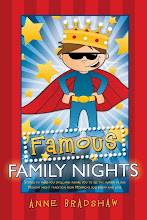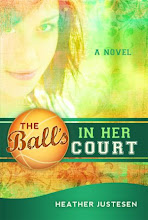My sister told me to see it. My best friend told me to see it. But as life goes, it wasn’t until it was #1 in my Netflix queue and arrived in my mailbox that I actually saw this critically-acclaimed film.
Let me just say: I loved it! Loved every moment. The fifteen I spent in tears. The five I spent laughing. The ninety I spent lying in bed after it was over, thinking about resilience, about love, about doing something. I quickly got online and found a copy of the book the movie is based on.
A day later, I heard about a reality show starring one of the teen suspects in the highly-publicized slew of celebrity home burglaries. This show follows the life this teen. It shows her buying clothes, getting pedicures, and visiting her attorney.
No one is telling me to watch this show, and I’m not thinking I’m going to, I’m sorry to say.
As a storyteller, I pay a lot of attention to the stories being told--whether it be on book or magazine pages; or on movie, TV, or computer screens. There is great power in stories. And for me, the stories that show us the good in the world, and in turn, touch the place in our souls that makes us want to add to that good are those that need to be told more and more.
It is a great joy to be a writer, a storyteller. But for me, I also feel a great responsibility. To take the good of what I’ve seen, and sometimes the good of what I’ve hoped, and make sure it makes it to the pages of my books. To make sure that even though my characters may like their pedicures, I always acknowledge that cute feet are only as good as the path they’re walking.
So, here’s to walking a good path, lending a good hand, and being the best of what we’ve read and seen and heard in the stories that shape us, day after day.
Thursday, May 6, 2010
The Blind Side
Posted by Elodia Strain at 10:30 PM 2 comments
Labels: movies, reality TV
Saturday, September 5, 2009
Peek in the Past - The Old Prison Site
Another place from childhood memories of Knutsford, Cheshire, was the old Prison Site. This place conjured up the strangest imaginings in my young mind. I wasn’t old enough to understand the full extent of man’s suffering when freedom had gone, and all that was left was the monotony of four walls and memories of better times, but still, the old place had a feel to it that was creepy, yet compelling.
I often cycled over there on my black bike (a second-hand but repainted birthday gift from my parents), riding up and down the bumpy hills worn into uneven paths by years of feet taking a short cut to town.
The ground, which was about the size of two soccer fields, had been known locally as the “Prison Site” for so long that the words were more a title than a phrase, and the meaning forgotten—similar to the way Brits call a vacuum cleaner a Hoover, with no thought to the real meaning. This aerial photograph of the prison dates from about 1930 before it was demolished. The four-storey prison was built in 1853 to hold a hundred women. It was known as the 'House of Correction' in 1860, when it held 273 prisoners, with a capacity for 700, according to Joan Leach in her book Behind Prison Walls. And David Woodley, in his book, Knutsford Prison: The Inside Story, says, “Over the years, as well as local criminals, debtors and offenders against the Game and Bastardy Laws, Knutsford Prison housed disaffected Chartists and those awaiting transportation. From 1886, until it was taken over by the Home Office as an Army detention barrack in 1915, nine executions took place on its scaffold.”
This aerial photograph of the prison dates from about 1930 before it was demolished. The four-storey prison was built in 1853 to hold a hundred women. It was known as the 'House of Correction' in 1860, when it held 273 prisoners, with a capacity for 700, according to Joan Leach in her book Behind Prison Walls. And David Woodley, in his book, Knutsford Prison: The Inside Story, says, “Over the years, as well as local criminals, debtors and offenders against the Game and Bastardy Laws, Knutsford Prison housed disaffected Chartists and those awaiting transportation. From 1886, until it was taken over by the Home Office as an Army detention barrack in 1915, nine executions took place on its scaffold.”
When we lived nearby, the old prison had long been knocked to the ground, leaving heaps of brick and rubble over which grass and weeds grew in wild abundance. No one ever questioned why the debris wasn’t removed. It stayed there until after we moved home when I was twelve, and provided secret caverns big enough for my hand to insert small treasures, buttons, and a bright-but-broken Christmas ornaments. I always closed the hole containing my secret booty with a brick marked with chalk.
Sometimes, the contents would disappear by the time I next visited my hole, and that’s when I invented stories about prisoners still in dungeons below the ground, who took my gifts to perk up their days. Of course, they were always innocent prisoners, wrongly captured for crimes uncommitted, and there was always a fair maiden (me) waiting for the right moment to re scue the rugged hero. Actually, my heroes all looked like Cornel Wilde, an actor in a movie I saw with my mother. He was a trapeze artist in the 1952 version of The Greatest Show on Earth.
scue the rugged hero. Actually, my heroes all looked like Cornel Wilde, an actor in a movie I saw with my mother. He was a trapeze artist in the 1952 version of The Greatest Show on Earth.
That was the first movie I ever watched, and it marked the beginning of an enchantment with the silver screen and all things connected. In England, trips to the cinema were called “going to the pictures.” As I grew older, I added stage musicals, concerts, and pantomimes, and invariably became so absorbed in the tale that the end always came too soon and it was a shock to find the world around me hadn’t changed.
By the way, in more recent years, the old Prison Site became the home of Booths Supermarket, and I understand there are reports of paranormal activity by local residents. Oh, for the time to write more. There has to be a good story in there, somewhere.
Back in two weeks. Oh, and if you'd like to read the latest review of Famous Family Nights, hop on over to author Sherry Ann Miller's blog by clicking HERE. Her first sentence says, "Famous Family Nights . . . is one of the best books I've ever read on Family Home Evenings." Thank you, Sherry Ann, you made my day. And I have to add, all credit for it being that good goes to the 91 participants who sent in their fascinating stories. Hats off to them all.
Posted by Unknown at 6:12 AM 3 comments
Labels: Anne Bradshaw, childhood, England, Famous Family Nights, movies, Peek in the Past, prison site, stories
Monday, July 27, 2009
What's Jane Doing?
This weekend I watched the movie, “Becoming Jane,” which is based on the life of author, Jane Austen. In a particular scene, Jane is inspired by something that’s said and excuses herself mid-conversation to go write down the words. As she sits and pulls out her lead and paper, the woman—a ‘Lady’ of wealth—and man—the wealthy woman’s nephew—with whom Jane had been conversing have a small exchange that goes something like this:

Lady: “What’s she doing?”
Nephew: “Writing.”
Lady: “Can anything be done about it?”
Nephew grins and shrugs.
While watching this show, I had to laugh at the situation because it is such a spot on scenario in my own life. It truly can’t be helped, and my answer to the ‘Lady’ is, no, nothing can be done about it.
As authors and writers, we often tend to take in fine points of conversations and surroundings that others easily dismiss. These are the words and details that usually end up in our stories or other writing.
Is it because we’re hyper-aware? Or because we pay closer attention to the details of life? Maybe both. Or maybe our brains are constantly on overdrive as we do our best to go through life thinking around and through the voices in our head. Because for some of us, those voices are always there, and often loudest when we’re trying to close down and have a quiet moment. They hound us as we sleep at night, as we sit in church meetings, drive in our cars, sit on our back porch enjoying the family, during vacations, and sometimes as we attempt to meditate.
So when you ask yourself (or when someone else asks you) “Can anything be done about it?” here’s a possible solution: don’t ignore inspiration. Pull out your handy-dandy notebook (which you should always have nearby) and use it as a filter. By writing down the random lines, thoughts, and impressions as often as they come, we can better pay attention to other things going on around us.
Inspiration can be a terrible inconvenience—and it may take some training, but we can teach ourselves to keep those precious moments of clarity while still continuing through our daily lives with work, family, friends, and other obligations. We don’t have to give up one for the other. Instead, we simply learn how best to capture those moments while we continue to be present in the here and now.
And when you stop mid-conversation to snag a pen and write a few lines on your hand, your relatives and friends will eventually stop asking, “What’s she doing?”
They’ll automatically know you’re writing and that it’s okay. You’ll write down one or two lines, and jump right back into visiting.
Such is the life and reputation of a writer. And personally, I think it’s grand.
Posted by Nichole Giles at 12:27 AM 4 comments
Labels: details of life, inspiration, Jane Austen, movies, Nichole Giles, passion in writing, writing, writing process
















